Ukraine’s Roma refugees face uncertain future under threat of discrimination in Hungary
As many Romani people cross the Ukrainian-Hungarian border, fears are rising over how they’ll be treated under Viktor Orban’s regime. Amanda Coakley reports from the village of Tiszabecs

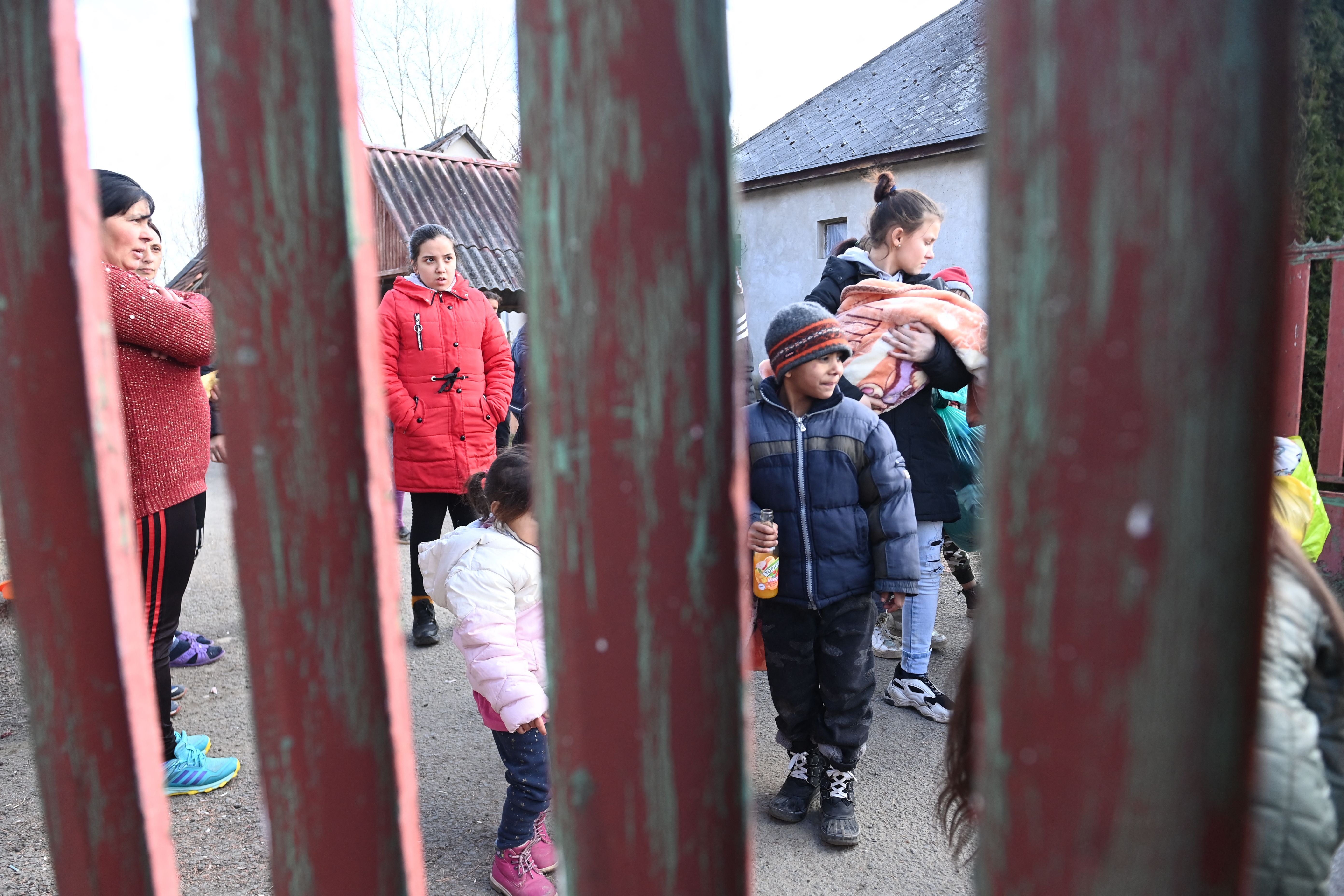
As the warnings grew ever louder in the weeks before Russia’s invasion of Ukraine, Romani man Maxsim became increasingly concerned about his family and their community in the western Ukrainian city of Vynohradiv.
While he was worried about what he would do if a war started and his work as a labourer dried up, the 21-year-old did not believe deep down that there would be full-scale conflict.
So when Russian missiles started raining down on Ukrainian soil on 24 February, Maxsim was stunned, and heartbroken. He knew his family needed a plan and immediately gathered with his Roma community to discuss their collective response and next steps.
Several men said they wanted to stay and fight for Ukraine. Wealthier families donated money to poorer ones to ensure they had basic supplies.
It was decided that some men would lead the women and children out of the country, find work abroad, and send the money back home to ensure more could leave in case their community was sidelined by the national humanitarian effort.
Maxsim was tasked with taking his 16-year-old wife, Christina, their one-year-old daughter, and his entire extended family – about 25 people in total – to Hungary, a journey that they said took two days despite it only being 20km as the crow flies.
“The second the invasion happened, the work we had lined up disappeared, so we had to go,” Maxsim, who only gave his first name, told The Independent. “My parents refused to leave, so it was all up to me to navigate the transport and get everyone to safety.”
When the group arrived at the Tiszabecs crossing between Ukraine and Hungary, Maxsim was not stopped despite Ukrainian president Volodymyr Zelensky’s ban on men aged between 18 to 60 leaving the country. Maxsim says no one asked him questions when they saw he was a Roma.
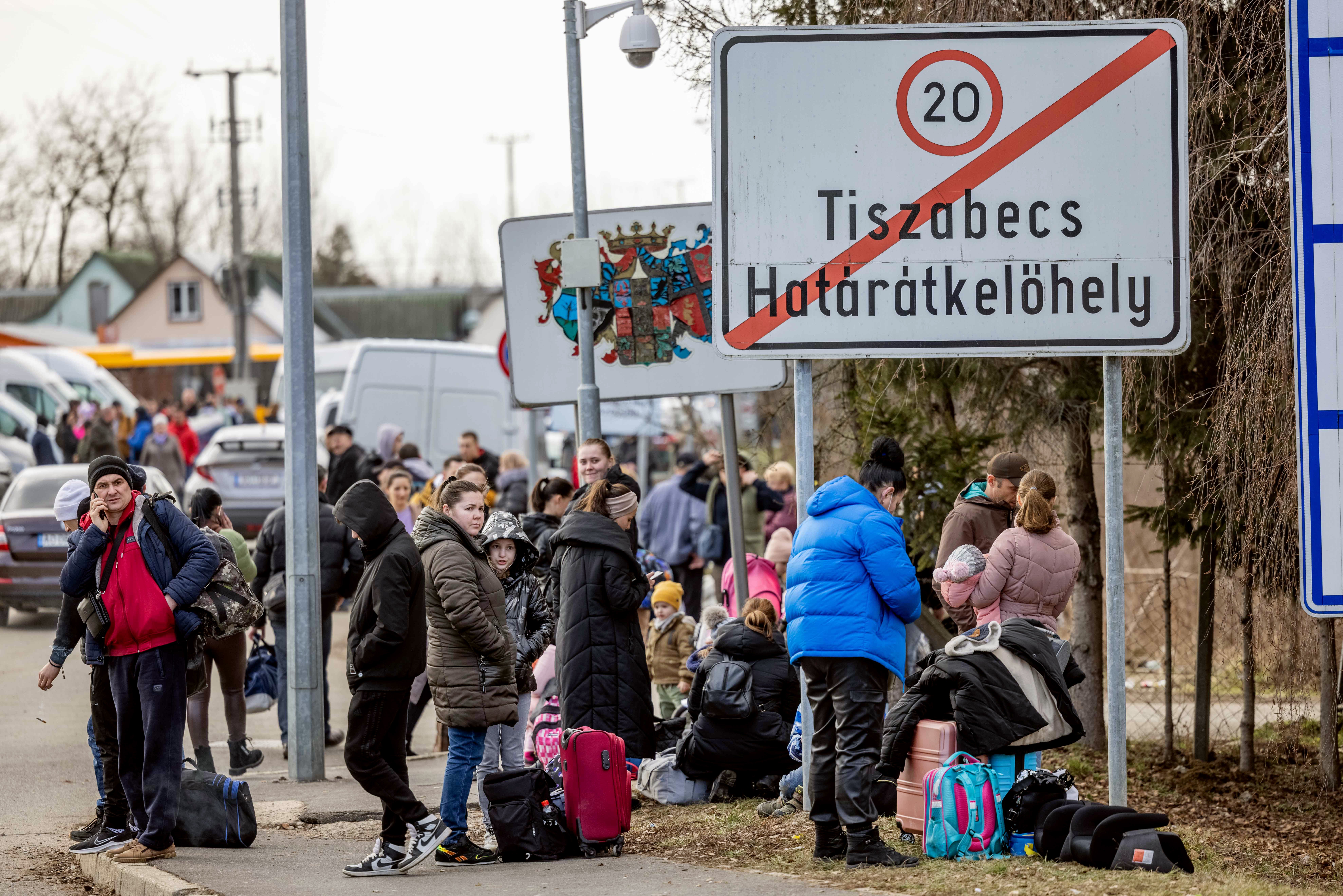
Activists told The Independent that other Romani men have been prevented from leaving Ukraine at the border and conscripted into the military, seemingly making the outcome dependent on how a particular border guard views the community.
Approximately 100,000 Romani people have left Ukraine in the last two weeks, according to figures given from the European Roma Rights Centre, although the real number is likely to be considerably higher.
Before the invasion and ensuing exodus, there were believed to be anywhere between 300,000 and 400,000 Romani people in Ukraine, according to various estimates.
We are already seeing unequal treatment of Romani refugees
Although well established and self-sufficient in the country, the Roma have long been sidelined by Ukrainian society and subjected to discrimination and violence.
Human Rights Watch (HRW) last November warned there was widespread online hate speech against the Roma community in several cities, and said that while attacks on Romani people were frequent, official investigations tended to fall by the wayside.
And now the war has exposed them to new challenges.
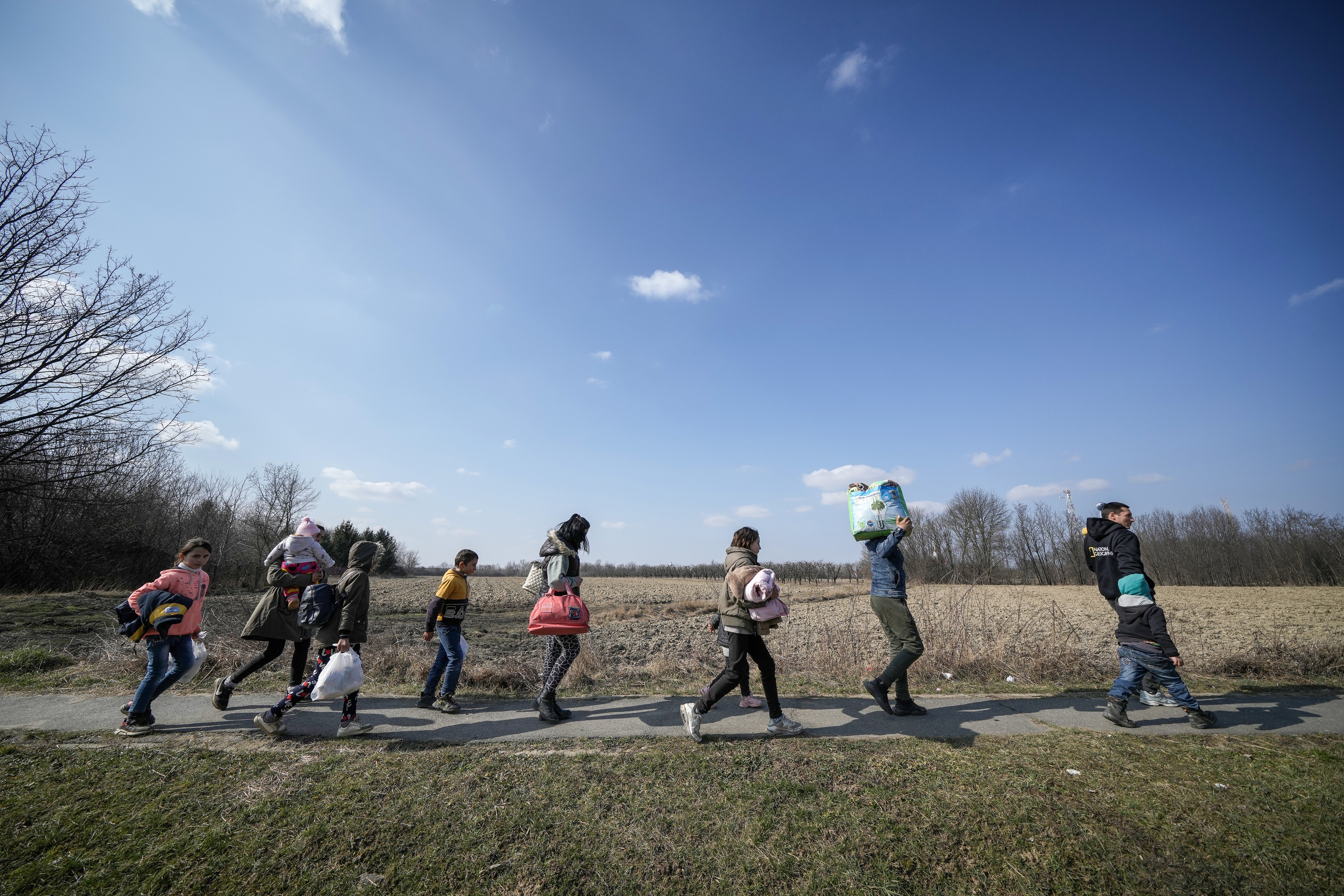
Although the majority of Roma live in Ukraine’s western Zakarpattia region, those settled in the north and east of the country are finding it difficult to reach safety due to a lack of cash and identification documents. Furthermore, they are unsure of how they will be received abroad, that is if they are even allowed to enter another country.
“At the moment there is unprecedented support and tolerance for Ukrainian refugees… however, we are already seeing unequal treatment of Romani refugees,” said Jonathan Lee, spokesperson for the European Roma Rights Centre.
“They are more likely to be refused at borders, more likely to be neglected by local authorities once they cross … and they are also less likely to be hosted in small family apartments in European cities.”
The journey to Tiszabecs was particularly hard for Christina, who had been terrified she might have to make the journey alone.
“Having my husband and family with me has made a scary situation better,” she said, cradling her infant in the village hall in Tiszabecs.
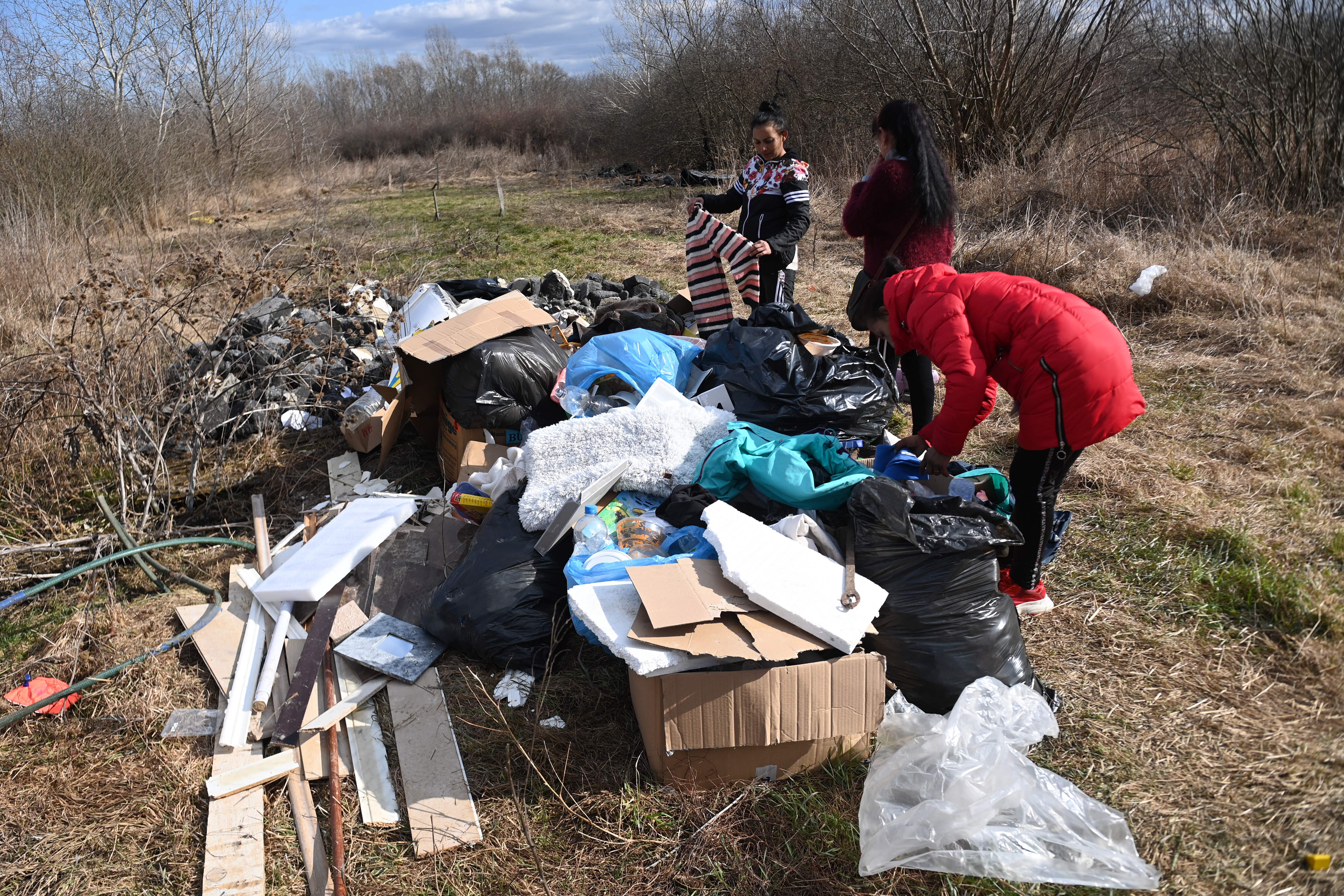
She has no idea what is in store in the days and weeks ahead, but hopes Maxsim will ultimately find work on construction sites in the capital, Budapest, in order to ensure their survival and send money home to help get the rest of their family out of Ukraine.
However, their prospects in the country could well hinge on the stance of the government and nationalist leader Viktor Orban towards the Roma community – with campaigners fearful of how things might develop as the number of Romani arrivals increases.
Mr Orban has long been accused of anti-Roma sentiment, while his government has supported the segregation of Romani children in schools and hinted that the community should not be entitled to the same family state benefits as the rest of the population.
“There have been some reports of ethnic profiling on the Hungary-Ukraine border, but several aid organisations have been working to counter that,” Bernard Rorke, a long-time campaigner for Roma rights in Hungary, told The Independent.
“This government is without scruples and their behaviour is determined by what they deem to be political necessity. Orban has not hesitated before to single out the Roma for political gain as he has scapegoated the LGTBQ community,” he added.

Hungary has received more than 214,000 refugees from Ukraine so far - amid an exodus that has seen at least 2.3 million people flee in total - although it is unknown how many of these are Romani people. Members of the Roma community have also fled to other neighbouring countries including Moldova and Romania.
Across Eastern Europe, observers and analysts have pointed out how Ukrainians have been treated favourably compared to the millions of people from nations such as Afghanistan, Syria, and Eritrea who have been arriving at the EU’s borders and shores in recent years.
Nevertheless, the local community in Tiszabecs have opened their arms to all those fleeing Russia’s war, according to the village’s army of volunteers.
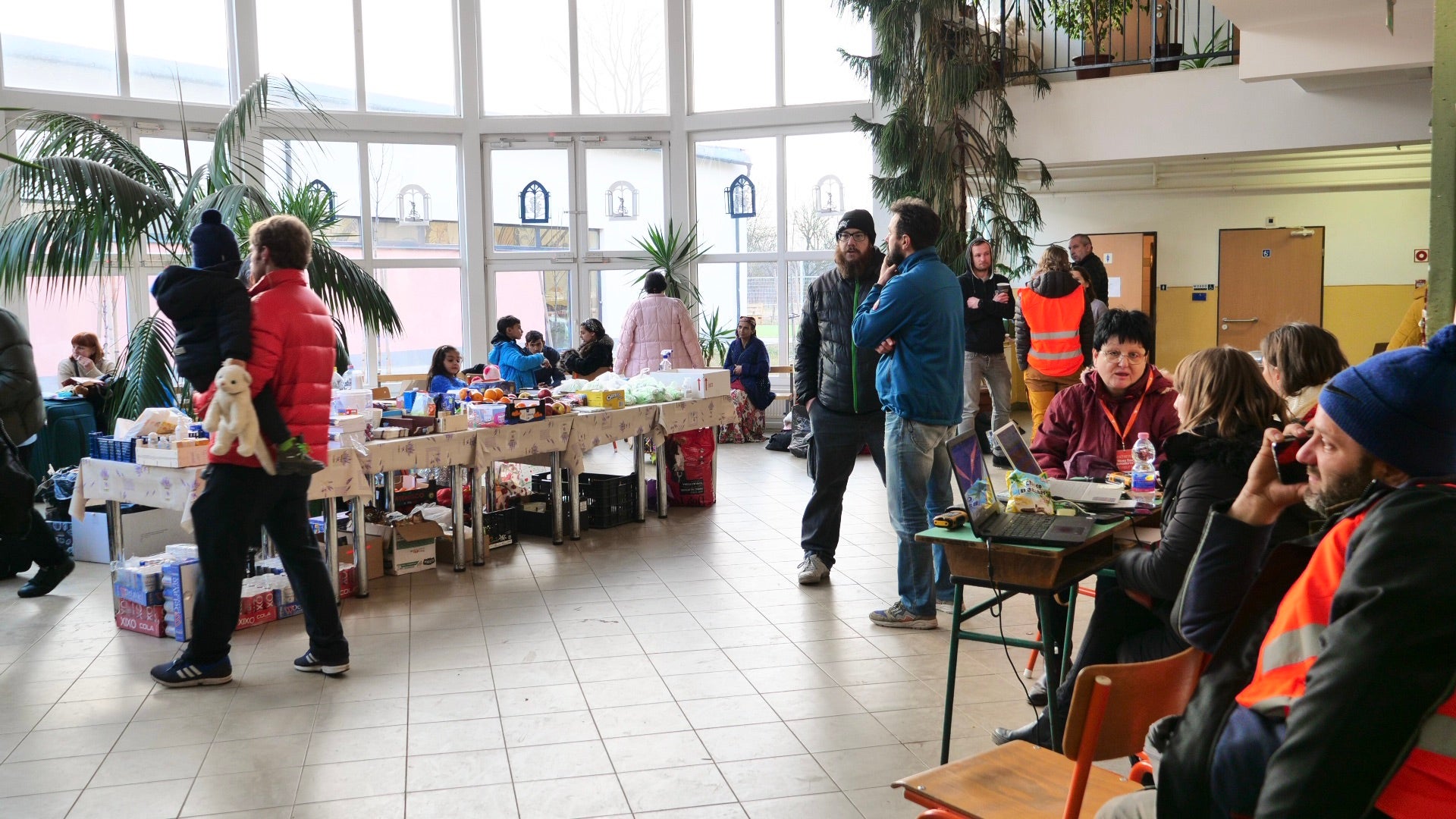
The village hall has been inundated with so many donations that they have started to turn away perishable goods, while a stall selling Langos, a Hungarian street dish, has been set up to feed people in need of a hearty meal after their long trek to safety.
“Teachers, old people, chefs, everyone has come to help people in need and in many cases that’s Romani people,” said Peter Borbely, the village’s headmaster who closed his school for three days to focus on the humanitarian response.
“Everyone needs some support and that is what we will continue to provide. We’ll keep going until the very end.”
The Independent has a proud history of campaigning for the rights of the most vulnerable, and we first ran our Refugees Welcome campaign during the war in Syria in 2015. Now, as we renew our campaign and launch this petition in the wake of the unfolding Ukrainian crisis, we are calling on the government to go further and faster to ensure help is delivered. To find out more about our Refugees Welcome campaign, click here. To sign the petition click here. If you would like to donate then please click here for our GoFundMe page.






Join our commenting forum
Join thought-provoking conversations, follow other Independent readers and see their replies
Comments